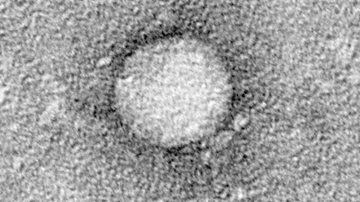Hepatitis B: New treatment possibilities
Viruses such as hepatitis B virus (HBV) can persist by depositing their genetic information in the cell nucleus. An international team of scientists headed by Prof. Ulrike Protzer and Prof. Mathias Heikenwälder,Institute of Virology at the Helmholtz Zentrum München and the Technische Universität München has now discovered how the viral DNA of the hepatitis B virus can be degraded in the cell nucleus of liver cells, consequently allowing the virus to be eliminated. The research was supported by the German Center for Infection Research (DZIF). In the current issue of the prestigious journal ´Science`, the scientists report that now new therapeutic possibilities are consequently opening up.
"The degradation of viral DNA in the cell nucleus that we describe represents an important mechanism in the defence against the virus", Prof. Ulrike Protzer reports. "Moreover, for the first time, the results offer the possibility to develop a treatment that can heal hepatitis B." Although preventive vaccination is possible, the World Health Organization (WHO) reports that more than 240 million people around the world are currently suffering from chronic hepatitis B infection. They face a high risk of developing liver cirrhosis or even liver cancer.
The scientists have discovered that in addition to interferons (the immune system's defence agents), activation of the lymphotoxin β receptor in the host cell promotes certain proteins and supports their function in such a way that they chemically modulate and degrade viral cccDNA. This keeps the virus from reactivating, and also prevents the disease from breaking out again, even after the treatment has ended.



